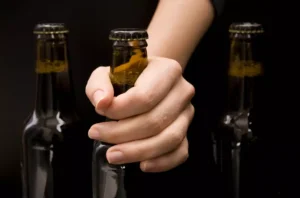
Speak with a healthcare professional about the benefits and risks. Experts suggest moderate alcohol consumption is generally safe while taking blood thinners. Some people may initially follow these recommendations but become tempted to increase their alcohol intake over time. Researchers have found that low-to-moderate drinking could reduce certain processes that lead to heart disease and inflammation. However, more research is necessary to determine whether alcohol use is directly responsible for these possible heart benefits.
Ask the Expert: Common Questions About Alcohol and Blood Thinners
However, if you drink too much alcohol with aspirin, it can cause nausea and vomiting, heartburn, stomach ulcers, and gastrointestinal bleeding. However, like any drug, blood thinners come with side effects, especially if mixed with alcohol. Because you take a blood thinner, you will be seen regularly by the doctor who prescribed the medicine. When you see other doctors, it is very important that you tell them you are taking a blood thinner.
Blood thinners and alcohol: can they be used together?
Blood clots can put you at risk for heart attack, stroke, and other serious medical problems. A blood thinner is a kind of drug called an anticoagulant (an-te-ko-AG-u-lent). “Anti” means against and “coagulant” means to thicken into a gel or solid. Given these potential risks, it is crucial for individuals on blood thinners to moderate their alcohol intake and consult with their healthcare provider for personalized advice. The National Institutes of Health also highlights the importance of understanding alcohol-medication interactions to prevent adverse health effects.

Blood Thinners and Alcohol: Interactions, Risks, and Side Effects
About 30 grams of alcohol — equating to two standard drinks — can lower fibrinogen levels, which can affect blood clotting. This article explains the safety and effects of drinking alcohol while using blood thinners. Review a list of your current medications, including supplements and over-the-counter medications, with your healthcare provider. They can help you screen for potential interactions with Eliquis.

The World Health Organization (WHO) emphasizes the need for global awareness of alcohol’s impact on health and advocates for interventions to reduce harmful use. Talk to your Mercy doctor about which blood thinner, if any, is right for you. If you drink, ask your doctor blood thinners and alcohol if it’s OK for you to have alcohol and how much is too much. An occasional drink is probably fine, but it’s best to be sure. Even a minor cut may bleed a lot if you’re on these medications. These drugs work by breaking fibrin formation causing the clot to dissolve.
This condition affects more than one million people in the UK around 7% of those over 65s. Regular blood tests are not needed for some of the newer blood thinners. Because you are taking a blood thinner, you should try not to hurt yourself and cause bleeding. You need to be careful when you use knives, scissors, razors, or any sharp object that can make you bleed.

- Since blood thinners are designed to thin the blood and alcohol has that same effect, drinking alcohol while on blood thinners should be avoided to prevent excessive thinning.
- You should avoid taking nonsteroidal anti-inflammatory drugs (NSAIDs) with blood thinners.
- The blood-thinning effect of Lovenox is enhanced while using alcohol, increasing the risk of bleeding.
- “The main side effect of a blood thinner, not surprisingly, is bleeding,” says Christopher B. Granger, MD, a cardiologist at Duke Health in Durham, North Carolina.
- Enjoying a glass or two of wine or beer shouldn’t be a problem.
According to the Dietary Guidelines for Americans, published by the U.S. Department of Agriculture, moderate drinking is up to one drink per day for women and up to two drinks per day for men. Having low platelet levels does not normally cause symptoms but can lead to excessive bleeding and easy bruising. If you have an infection, let your prescriber know you’re taking a blood thinner. Some foods and supplements are believed to have some blood thinning properties.
Products and Services
Depending on how this interaction works, it could cause the blood to become too thin, creating a high risk for bleeding from minor injuries. It could also reverse the effects of the blood thinners, increasing the risk of dangerous conditions like heart attack or stroke. Antiplatelet medicines are used to stop blood clots from forming. They are a group of drugs that stop certain blood cells (called platelets) from clumping together and forming a blood clot to help stop bleeding. When you’re taking a blood thinner, it’s important to be aware of potential interactions.
- Blood thinners are medicines that help keep you from forming blood clots as easily, which keeps your blood flowing smoothly through your veins and arteries.
- So, it’s important to check with your healthcare provider to make sure you’re taking the appropriate precautions.
- For men under age 65, up to two drinks a day is considered moderate.
